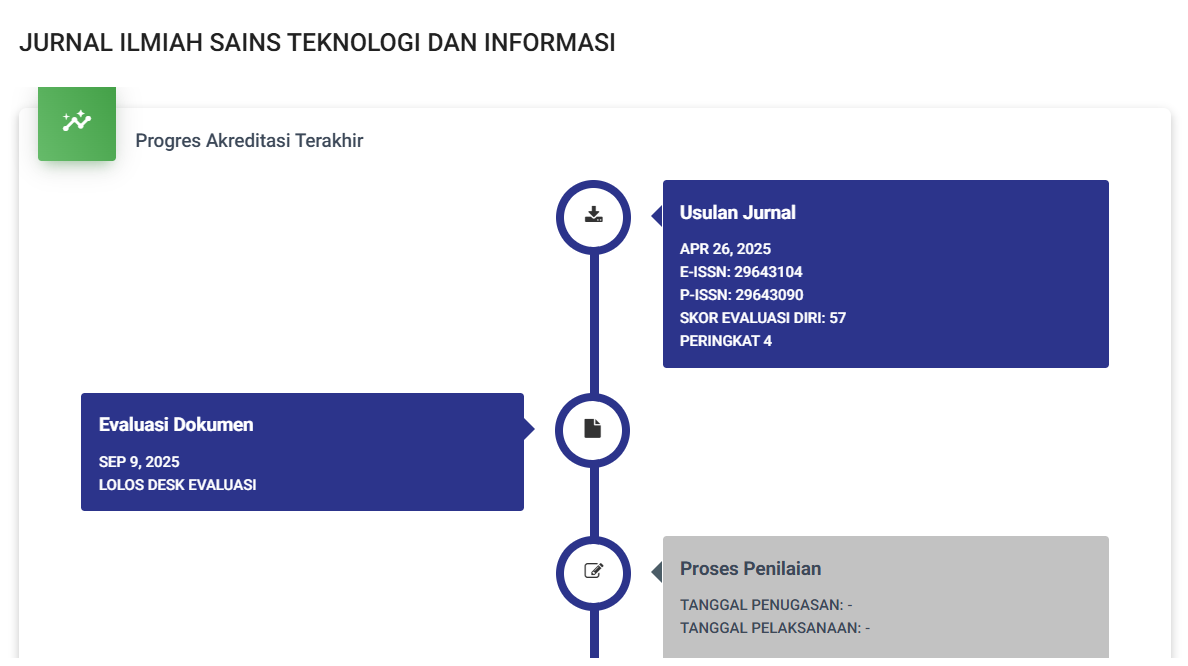Dampak Ekologis Implementasi Blockchain Dan Cryptocurrency Di Era Digital
DOI:
https://doi.org/10.59024/jiti.v2i4.973Keywords:
Blockchain, Crypto, ImpactAbstract
Blockchain and cryptocurrencies have changed the way we transact and interact in the digital age. However, the rapid advancement of these technologies has resulted in major environmental impacts. Efficient implementation of blockchain requires the use of large amounts of energy and computing power, with consensus algorithms as the foundation. The purpose of this study is to investigate the environmental implications of blockchain and cryptocurrency implementation, as well as initiatives to mitigate these issues. The type of research is a library study (library research) using a qualitative method, namely by combining, collecting information or previous scientific papers on relevant topics. Along with the growing popularity of cryptocurrencies, the continuous mining process often results in large energy consumption and carbon emissions, sparking concerns about their long-term viability and environmental impact. Based on the results of previous research and research sources, the author found a solution to the problem of high energy consumption from the use of blockchain, namely: Proof of Stake (PoS), Proof of Authority (PoA), Sidechains and Layer-2 Solutions, Hardware Optimization, Implementation of Consensus Algorithms Based on RUST.
References
Ariati, I., & Rudianto, D. (2024). Dampak Blockchain dalam Manajemen Keuangan pada Perusahaan Fintech. Journal of Economics and Business UBS, 13(2), 566–576. https://doi.org/10.52644/joeb.v13i2.1558
Bauk, S. (2023). Blockchain Principles and Energy Consumption Concerns. 2023 27th International Conference on Information Technology (IT), 1–5. https://doi.org/10.1109/IT57431.2023.10078571
Buterin, V., & Griffith, V. (2019). Casper the Friendly Finality Gadget. Computer Science > Cryptography and Security.
Carlsten, M., Kalodner, H., Weinberg, S. M., & Narayanan, A. (n.d.). On the Instability of Bitcoin Without the Block Reward. https://github.com/citp/mining
Chaurasia, A., & Krishnamachari, D. R. (2022). Implementation of Energy efficient Blockchain using RUST. 2022 Seventh International Conference on Parallel, Distributed and Grid Computing (PDGC), 429–434. https://doi.org/10.1109/PDGC56933.2022.10053178
Gesa. (2024, September 22). Lebih Dekat dengan Blockchain Layer 1, Ketahui Berbagai Kelebihan dan Kekurangannya. INVESTOR.ID.
Gioia Arnone. (2022). BLOCKCHAIN AND CRYPTOCURRENCY INNOVATION FOR A SUSTAINABLE FINANCIAL SYSTEM. International Journal of Industrial Management, 15(1), 1–16. https://doi.org/10.15282/ijim.15.1.2022.8994
Hadi, N. F., & Afandi, N. K. (2021). Literature Review is A Part of Research. Sultra Educational Journal, 1(3), 64–71. https://doi.org/10.54297/seduj.v1i3.203
Hillman, V., & Ganesh, V. (2019). Kratos: A secure, authenticated and publicly verifiable system for educational data using the blockchain. 2019 IEEE International Conference on Big Data (Big Data), 5754–5762. https://doi.org/10.1109/BigData47090.2019.9006190
Mandal, S. (2023). Blockchain Technology and its effect on Environment: A Comparative Study between Proof-Of-Work and Proof-Of-Stake. International Journal of Rural Development, Environment and Health Research, 7(2), 01–06. https://doi.org/10.22161/ijreh.7.2.1
Nakamoto, S. (n.d.). Bitcoin: A Peer-to-Peer Electronic Cash System. www.bitcoin.org
R, Vaishnavi., C, A., C, P., Sankalpkumar, S., Prasanna, E., & V, Dr. S. (2024). Energy Efficiency in Blockchain Social Networks. International Journal of Research Publication and Reviews, 5(3), 819–825. https://doi.org/10.55248/gengpi.5.0324.0632
Rao, J., & Han, X. (2024). Analysis on the Application of Ecological Environment Protection System Under Blockchain Technology. https://doi.org/10.3233/FAIA240105
Rauchs, M. (n.d.). GLOBAL CRYPTOCURRENCY BENCHMARKING STUDY. https://ssrn.com/abstract=2965436Electroniccopyavailableat:https://ssrn.com/abstract=2965436Electroniccopyavailableat:http
Sapkota, N., & Grobys, K. (2021). Blockchain consensus protocols, energy consumption and Cryptocurrency prices. The Journal of Energy Markets. https://doi.org/10.21314/JEM.2020.221
Snyder, H. (2019). Literature review as a research methodology: An overview and guidelines. Journal of Business Research, 104, 333–339. https://doi.org/10.1016/j.jbusres.2019.07.039
Treiblmaier, H. (2023). A comprehensive research framework for Bitcoin’s energy use: Fundamentals, economic rationale, and a pinch of thermodynamics. Blockchain: Research and Applications, 4(3), 100149. https://doi.org/10.1016/j.bcra.2023.100149
Vadapalli, R. (n.d.). BLOCKCHAIN FUNDAMENTALS TEXT BOOK Fundamentals of Blockchain. https://www.researchgate.net/publication/345045424
Vrandken, H. (2017). Sustainability of bitcoin and blockchains. Current Opinion in Environmental Sustainability (Vol. 28).
Downloads
Published
Issue
Section
License
Copyright (c) 2024 JURNAL ILMIAH SAINS TEKNOLOGI DAN INFORMASI

This work is licensed under a Creative Commons Attribution-ShareAlike 4.0 International License.










